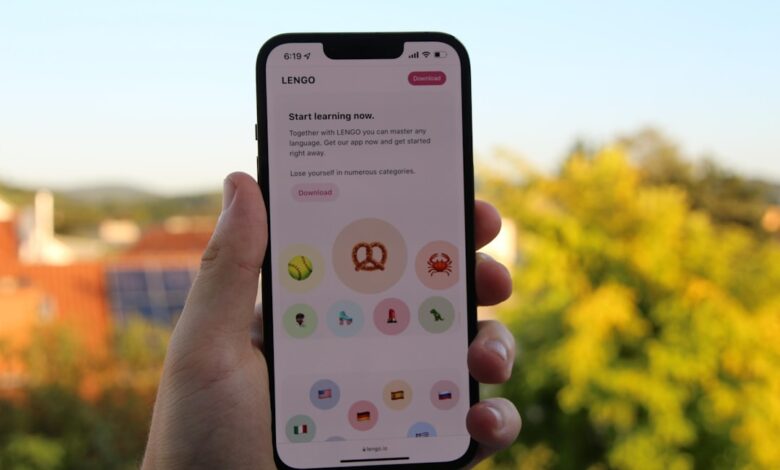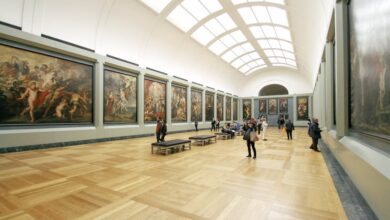Best French Learning Apps Free

Bonjour, mes amis! Want to learn French but don’t want to empty your wallet? You’re in luck! There are tons of amazing free apps that can help you on your French-learning journey. As someone who’s navigated the world of language learning apps, I’m here to guide you through the best free options available today. Let’s dive in and find the perfect app to get you speaking French with confidence!
Why Use a Free App to Learn French?
First off, why bother with an app at all? Well, they’re super convenient! You can learn French on your commute, during your lunch break, or even while waiting in line. Plus, many free apps use game-like features, which make learning fun and engaging. They often include audio, visual, and interactive elements to cater to different learning styles. And, of course, the price is right! Free apps let you explore the language without any initial financial commitment.
The Best Free French Learning Apps
Alright, let’s get to the good stuff! Here are my top picks for free French learning apps:
Duolingo
Duolingo is probably the most well-known language learning app out there, and for good reason. It offers a comprehensive French course that covers everything from basic vocabulary and grammar to more complex sentence structures. The app uses a game-like format with points, badges, and leaderboards to keep you motivated. The lessons are short and sweet, making it easy to fit them into your busy schedule. While the free version includes ads, it still provides a fantastic learning experience.
Memrise
Memrise focuses on vocabulary acquisition through the use of mnemonics and spaced repetition. It’s a great way to memorize new words and phrases quickly. The app also includes videos of native speakers, which helps you improve your listening comprehension and pronunciation. While Memrise offers a premium subscription, the free version provides access to a vast library of user-created courses and official Memrise courses focused on core vocabulary.
Babbel (Free Lessons)
While Babbel is primarily a subscription-based service, they offer a free introductory lesson in each language. This allows you to get a feel for their teaching style and content before committing to a paid plan. The free lesson in French will introduce you to some basic phrases and vocabulary, and give you a taste of Babbel’s interactive exercises and dialogue practice.
HelloTalk
HelloTalk is a language exchange app that connects you with native French speakers from around the world. You can chat with them via text, voice, or video call, and they can help you with your French while you help them with your native language. It’s a fantastic way to practice your conversational skills and learn about French culture. The app also includes built-in translation tools and correction features, which are super helpful when you’re just starting out.
LyricsTraining
Want to learn French through music? LyricsTraining is the app for you! It allows you to listen to French songs and fill in the missing lyrics. It’s a fun and engaging way to improve your listening comprehension and vocabulary. The app offers different difficulty levels, so you can start with easier songs and gradually work your way up to more challenging ones. While it’s not a comprehensive language learning tool, it’s a great supplement to other methods.
FrenchPod101 (Free Content)
FrenchPod101 offers a wealth of free audio and video lessons for learners of all levels. While they do have a premium subscription, their free content is surprisingly extensive. You can access hundreds of lessons that cover a wide range of topics, from basic greetings to advanced grammar concepts. The lessons are presented in a podcast format, making them perfect for listening to on the go. They also provide transcripts and vocabulary lists to help you follow along.
Tips for Maximizing Your Free French Learning App Experience
Okay, you’ve downloaded an app (or maybe even a few!). How do you make the most of it? Here are a few tips:
Set Realistic Goals: Don’t try to learn everything at once. Start with small, achievable goals, like learning five new words a day or completing one lesson each day. Consistency is key!
Practice Regularly: Even just 15-20 minutes of practice each day can make a big difference. The more you practice, the faster you’ll progress.
Don’t Be Afraid to Make Mistakes: Everyone makes mistakes when they’re learning a new language. Don’t let them discourage you. Instead, learn from them and keep practicing.
Find a Language Partner: Practicing with a native speaker is a great way to improve your conversational skills and get feedback on your pronunciation. Use apps like HelloTalk to find language partners.
Immerse Yourself in the Language: Watch French movies and TV shows, listen to French music, and read French books. The more you surround yourself with the language, the faster you’ll learn.
Are There Any Downsides to Using Free Apps?
While free apps are a great way to start learning French, there are a few potential drawbacks to keep in mind. Some apps may have limited content or features in their free version. You may also encounter ads, which can be distracting. Additionally, some free apps may not provide as much personalized feedback or support as paid options. However, these downsides are generally outweighed by the benefits, especially if you’re just starting out or on a tight budget.
Combining Apps for Maximum Learning
One strategy to consider is combining different apps. For instance, you might use Duolingo for structured grammar lessons, Memrise for vocabulary building, and HelloTalk for conversation practice. This way, you can benefit from the strengths of each app and create a well-rounded learning experience. Plus, it keeps things interesting and prevents you from getting bored with a single method.
Frequently Asked Questions
Is it possible to become fluent in French using only free apps?
While it’s challenging to achieve complete fluency with only free apps, it’s definitely possible to reach a conversational level. Free apps can provide a solid foundation in grammar, vocabulary, and pronunciation. However, you’ll likely need to supplement your learning with other resources, such as textbooks, language exchange partners, or immersion experiences, to achieve true fluency.
Which free French learning app is best for beginners?
Duolingo is generally considered the best free app for beginners due to its structured lessons, game-like format, and comprehensive coverage of basic French grammar and vocabulary. It provides a gentle introduction to the language and helps you build a solid foundation for further learning.
How long does it take to learn French using free apps?
The amount of time it takes to learn French depends on several factors, including your learning style, the amount of time you dedicate to studying, and your learning goals. However, with consistent effort and practice, you can expect to reach a basic conversational level within a few months and a more advanced level within a year or two. Remember, consistency is key!
Can I use free apps to prepare for French proficiency exams?
While free apps can be helpful for exam preparation, they may not be sufficient on their own. Consider using them as a supplementary resource alongside textbooks, practice exams, and other study materials. Focus on the specific skills and knowledge that are tested on the exam, such as grammar, vocabulary, reading comprehension, and writing.
So, there you have it! A comprehensive guide to the best free French learning apps available today. Remember to choose the app that best suits your learning style and goals, set realistic goals, and practice regularly. With a little dedication and effort, you’ll be speaking French in no time. Bonne chance!
Related Posts
| Best App To Learn French For Free |
| Best Free App To Learn French |



